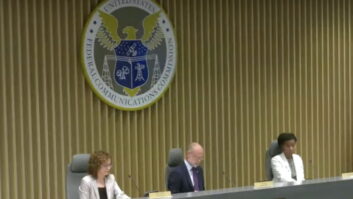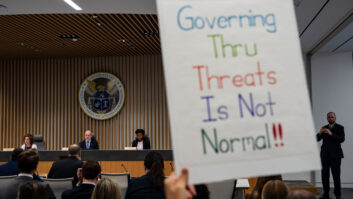News from the emergency alerting arena:
In an announcement that is of immediate interest mostly on the TV side, the FCC has adopted new Commercial Mobile Alert System rules.
“In adopting these rules today, we take another significant step towards implementing one of our highest priorities,” the commission stated, “to ensure that all Americans have the capability to receive timely and accurate alerts, warnings and critical information regarding disasters and other emergencies. … A comprehensive commercial mobile alerting system will bring great benefit to the public by ensuring that vital information reaches people quickly and efficiently.”
This second R&O is the commission’s next step in establishing a Commercial Mobile Alert System under which Commercial Mobile Service providers can elect to transmit emergency alerts to the public.
It took this step in compliance with the WARN Act, which requires the commission to adopt rules requiring noncom educational and public broadcast TV station licensees to install equipment at their broadcast digital transmitters to enable distribution of geographically targeted alerts by the CMS providers.
A radio footnote to this discussion is a disagreement over whether the requirements should apply to radio NCE stations.
Technology company DataFM had argued to the commission that the wording of the law means the rules would require installation of equipment at all NCE and public broadcast stations including radio.
But the FCC wrote, “We conclude that Congress intended the equipment requirements set forth in section 602(c) of the WARN Act to apply only to licensees and permittees of NCE and public broadcast television stations and not radio stations.”
Read the detailed Report and Order here.
This report involves mostly television implementation; however it is just one part of the larger picture in emergency alerting.
The WARN Act established a process for CMS providers to elect to transmit emergency alerts to their subscribers and the FCC said it will address the remaining WARN Act requirements in subsequent orders; in this document the commission also raised questions in a Further Notice of Proposed Rulemaking that involve the evolving broadcast alerting infrastructure.







